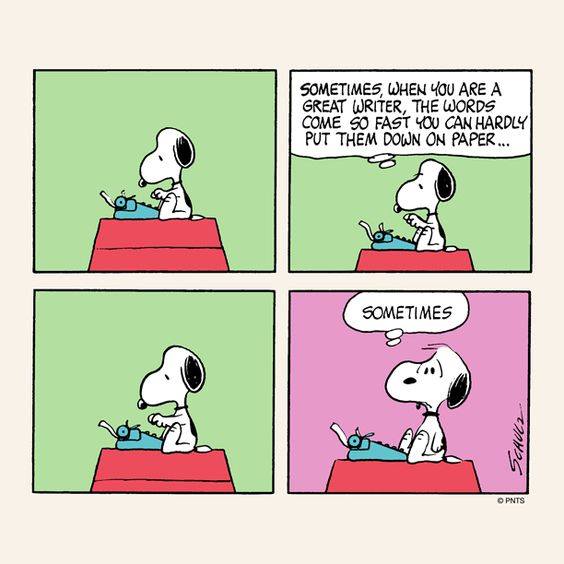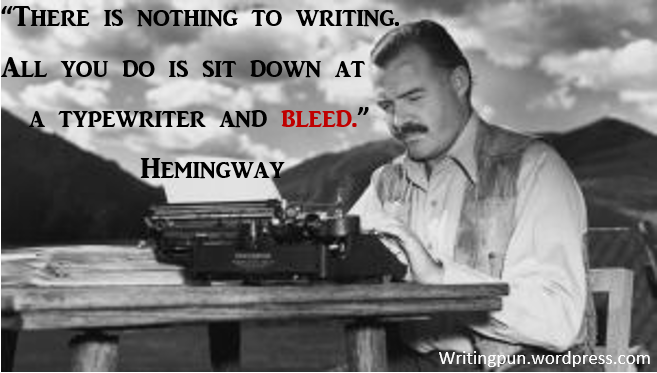When a fellow blogger, robertcday, told me that he was a pantser, I assumed it meant that he was someone who yanked down people’s pants in public for fun. However, after some research, it turned out that a pantser is someone who, “flies by the seat of their pants,” meaning they don’t plan out anything, or plan very little (thewritepractice.com). The world is safe from having to see your undies if you run into a pantser (admittedly, I am feeling kind of upset about the hilarity I’m missing out on because of this).
If you’re a pantser, the kind of person who writes without planning, you probably think that you don’t have much need to think about character arcs and that this article won’t be useful to you. However, this article isn’t about writing: it’s about revision. Once you have the story written out, elements like character arcs are things that you need to consider if you’re looking to get published.
Revision is hard especially if you don’t have the disposable income to spend on a professional editor and your friends can’t seem to ever get around to reading your work (Hint, hint. Was that passive aggressive enough?), or can’t provide any critiques other than, “It’s good!” I’ve been working on revising a draft of my completed manuscript for over a year because of these struggles. My strategy has been to break down the revision process into important elements, and my current focus is the character arcs in my novel.
Character Arcs
Firstly, what the heck is a character arc? A character arc is the evolution of your character throughout the story. There are arguably three basic character arcs: the positive change arc, the negative change arc, and the flat arc.
The Positive Change Arc occurs when a character begins their journey with some sort of unfulfillment or denial; after going through a number of trials that challenge their beliefs, the character will ultimately end up changing positively.
The Negative Change Arc is essentially a backwards version of the positive change arc: the character will have degenerated and changed for the worse by the end of the story.
The Flat Arc centers around a static character who doesn’t change throughout the story; they are already complete, and it’s often the character arcs of the minor characters that change because of them.
The first two arcs involve The Lie Your Character Believes.
The Lie Your Character Believes
We all have things that we cling to even if we know that they’re not necessarily true.
The lie I’m currently believing is that there’s a chance I can not only meet a quality person online, but also like said quality person when in reality, the chances of me liking anyone I meet in an inorganic situation are astronomically small.
We resist accepting that these things we believe are lies because quite often, the alternative is unappealing. In my Tinder example, if I accept that I won’t like someone I meet off of a dating site, that takes dating out of my control, and my depressed brain will likely think, “OH MY GOD, I’M GOING TO DIE ALONE.” See? Not appealing at all.
When it comes to writing, this resistance against the truth is good. Resistance creates conflict, and conflict creates interesting plot lines.
Helping Writers Become Authors provides and excellent list of lies characters from pop culture believe:
Only a few things can happen over the course of a story when characters believe lies. They will:
A. recognize the lie they believe which will make them into better characters than they were at the beginning of the story (positive character arc).
Or on the flip side of the coin:
B. the characters will still change, but for the worse (negative character arc). They will either never recognize the lie and continue down a path of delusion, or even worse, recognize the lie only after it’s too late (see: Othello).
Accounting for The Lie Your Character Believes is a great way to develop any character because no matter how your character responds to the lie, the character won’t be static, and will change over the course of the story. A character that has believable change over the course of a story is a well-written one.
The best part of this character element, is that it doesn’t just apply to the protagonist of your story, but to the secondary characters as well.
Let’s look at the villagers in The Beauty and the Beast. The lie they believe can best be summarized in this line from the mob song:
We don’t like what we don’t understand, in fact, it scares us.
That is their lie. If they don’t understand something, they must fear or dislike it. They exhibit this all throughout bith the the cartoon and the live action movie. They don’t understand Belle because of her passion for reading, and therefore label her as “odd.” This lie reaches its climax when the villagers are incensed to violence because of their misunderstanding of the beast and storm his castle with the intent to slaughter him.
After the curse is broken, the villagers learn that their lie, fearing what they don’t understand, is wrong because it lead them to fear their forgotten loved ones. If they hadn’t learned to stop fearing what they don’t understand, they likely would have been very frightened to see clocks and candlesticks transform into men, but they didn’t because they have a positive character arcs.
The villagers are just background characters to the plot, but even they have a lie that they believe. When they respond to their lie (ie alienating Belle, nearly murdering the Beast, and recognizing their fault by accepting their enchanted loved ones), it makes them believable characters. They’ve grown. This makes for quality writing (not saying that Beauty and the Beast is the epitome of English literature, but you get the idea). Character’s believing lies exists in essentially every well-written work.
To Do
When revising your work, analyze each of your characters and answer the following questions about them (including the minor characters): What lies do they believe? How do they develop over the course of the story? Do they have positive or negative character arcs? Do they have an arc at all?
If the answer to the last question is no, then I think it’s time to take creating a Lie for them into consideration.
I answered tgese questiond for my manuscript, and it really highlighted the characters which are well developed, and more importantly, those who aren’t.
I have a character, Jaclyn, who systematically tortures my protagonist, Scarlett, whenever she encounters her because of a lie she believes. However, after Scarlett deals with the lies she’s been holding onto, Jaclyn’s lies are never addressed again, leaving the story feel somewhat unresolved. I would have never noticed it had I not revised for the lies my characters believe.
Whether you’re a pantser, a planner or a plantser (a mix of both!), accounting for the lies your characters believe will improve the quality of your writing.





 an Hemingway sitting at his typewriter bleeding his guts out.
an Hemingway sitting at his typewriter bleeding his guts out.